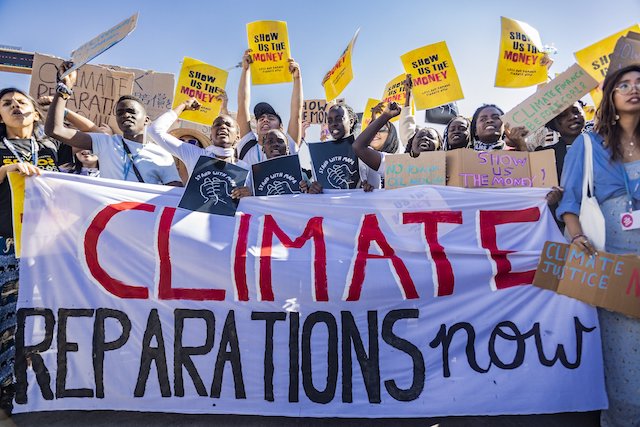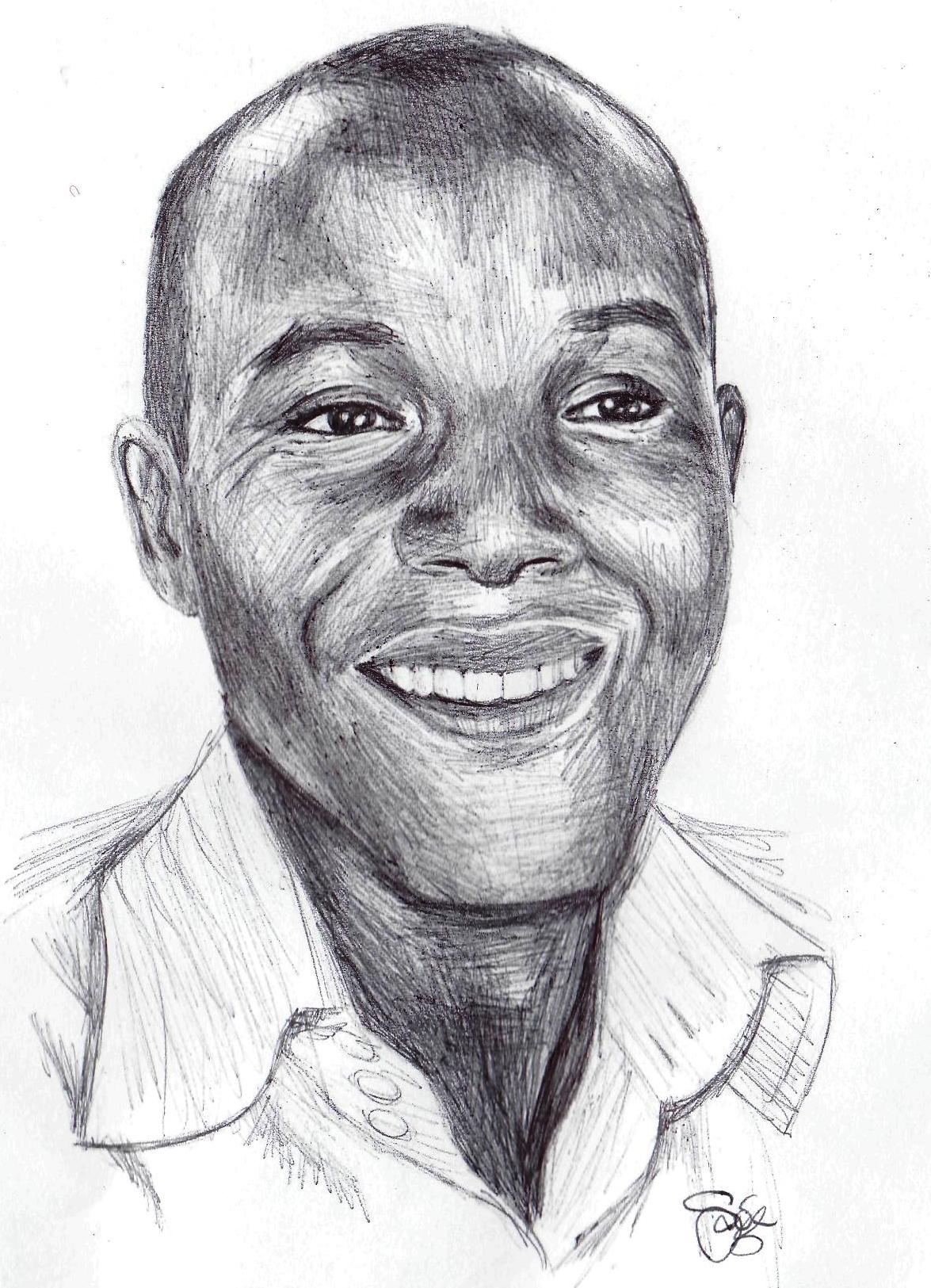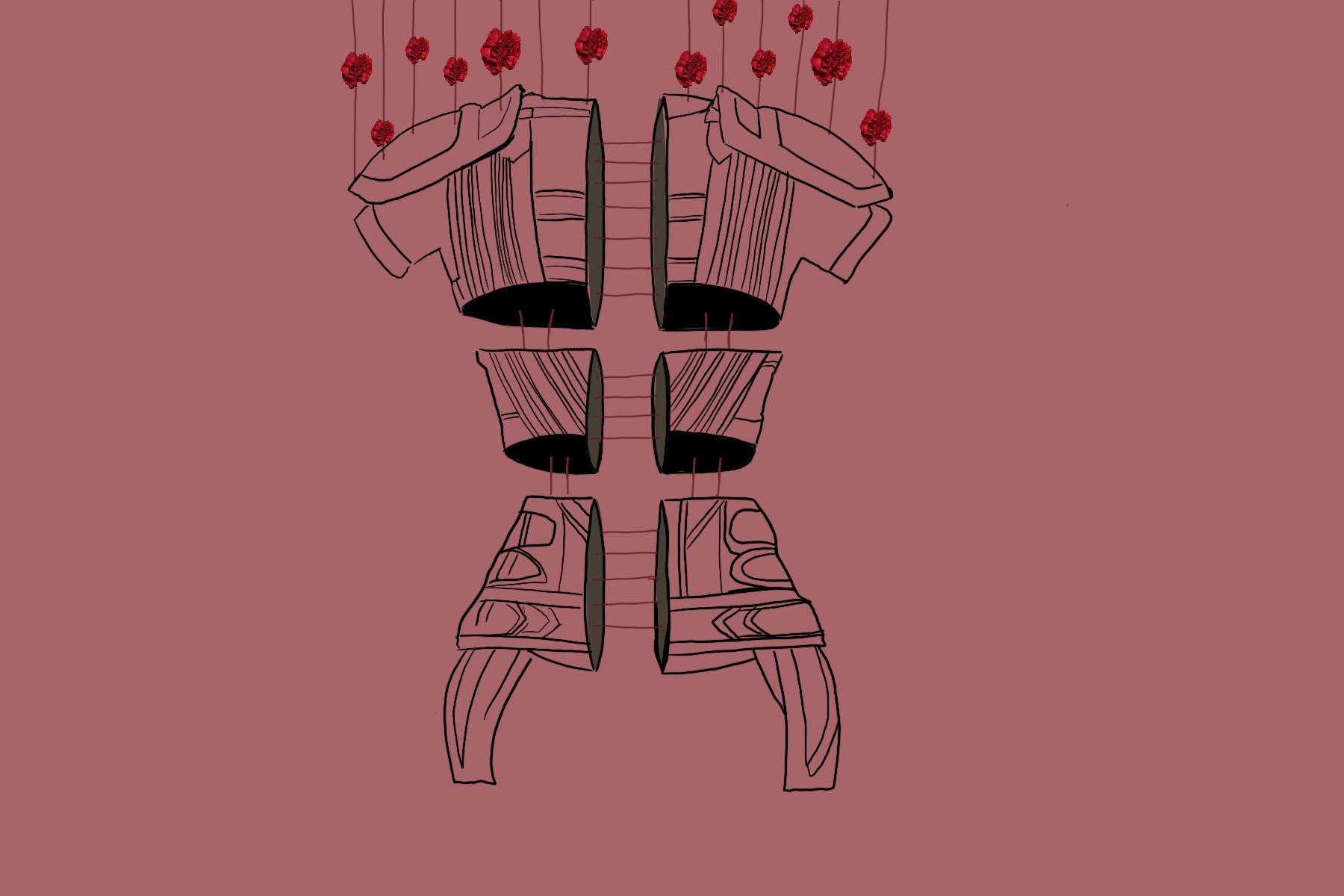
PRESSURE POINT – Azerbaijan hosting COP29 is a deadly case of greenwashing

This year’s annual United Nations climate change summit, COP29, has been hosted in Baku, Azerbaijan. But with its economy’s reliance on oil and gas, its crackdown on civil society, including eco-activists, and its ethnic cleansing of the Armenians in the Artsakh region, Azerbaijan’s hosting of COP29 seems to be a blatant and deadly case of greenwashing.
Azerbaijan’s economy heavily depends on its oil and gas industry, which, in 2022, made up nearly 50% of the country’s GDP and accounted for over 90% of its exports, according to the US International Trade Administration. President Aliyev even hailed oil and gas as “a gift of the God” in his address to the conference.
My issue with Azerbaijan hosting COP29, however, does not solely lie in its economic dependence on fossil fuels. President Aliyev made the good point that the Global North (for want of a better term) often demonstrates “double standards, a habit to lecture other countries and political hypocrisy” when it comes to the climate crisis. Not only has the Global North’s imperialist history mainly caused the climate crisis, but their continued use of the Global South as a scapegoat to avoid blame for the crisis is modelled on this colonialist history. In his address, President Aliyev objected to the US calling Azerbaijan a “petrostate” when the US itself is the largest producer of oil and gas in the world. Similarly, the European Commission signed oil and gas deals with Azerbaijan after the Russian attacks on Ukraine, which undoubtedly has kept Azerbaijani fossil fuel production high.
But I don’t think Azerbaijan can get off so lightly. Global Witness, a human rights organisation, led an undercover investigation in which they posed as an oil and gas investor, EC Capital, and went into discussions about sponsoring COP29 with Elnur Soltanov, the CEO of COP29 and Azerbaijan’s deputy energy minister. Although Soltanov emphasised COP29 and the climate crisis during their call, he also talked of developing gas fields and pipelines and put the fake company in contact with the State Oil Company of Azerbaijan (SOCAR) in order to strike a deal. This adds to the frustration at Azerbaijan’s plans to expand its oil and gas industry. An analysis by Global Witness found that Azerbaijani gas production is planned to grow by around 30% in the coming decade. Also, the UN Framework Convention on Climate Change’s code of ethics says COP host countries and officials cannot use their position “to seek private gain” and must act “without self-interest”. Azerbaijan’s hosting of COP29 seems to be a selfish opportunity for some officials to expand the Azerbaijani fossil fuel industry, which is contradictory to the aims of the summit.
Azerbaijan’s crack-down on civil society adds to the feeling that their hosting of COP29 may not be genuine. Azerbaijan has strict limitations on freedom of expression and assembly, which puts into question to what extent the conference can foster truthful discussions about the climate crisis.
According to the Union for the Freedom of Political Prisoners of Azerbaijan, around 300 political prisoners are being detained in Azerbaijan, including civil activists, journalists and human rights defenders. Amnesty International found that prison conditions do not meet international human rights standards and that prisoners often cannot see their families or lawyers. The families of the prisoners have also been persecuted, for example, through smear campaigns and their assets being frozen. A number of these prisoners are eco-activists. For example, Dr Gubad Ibadoghlu, a visiting fellow at the LSE, was arrested in July 2023 after writing about Azerbaijan’s oil and gas industry and environmental issues. His son told the Guardian that he is not getting the medicine he needs for his hypertension and type 2 diabetes. Anar Mammadli was also detained in April this year on bogus charges of bringing illegal foreign currency into the country. Mammadli is a human rights and climate activist who set up the Climate of Justice Initiative, which aimed to highlight Azerbaijan’s human rights abuses at COP29. His family say his obstructive bronchitis has gotten worse since being imprisoned.
The Azerbaijani government has passed and applied strict laws for media and NGOs within the last decade. For example, media outlets must be registered with authorities, which has resulted in the closing down of most independent media outlets, such as Kanal 13 and Abzas Media, and many of their key staff have been arrested. In June 2023, residents of the village Söyüdlü protested against the construction of a goldmine. Azerbaijani riot police were called and used rubber bullets and tear gas against the protesters. Many journalists were not allowed into the area, with some claiming police used physical force against them. Azerbaijan’s repression of civil liberties creates serious concern for activists’ ability to speak out freely at the conference.
A final concern about Azerbaijan hosting COP29 is that they have been accused by the European Parliament and others of ethnically cleansing Armenians in Nagorno-Karabakh, which is often called Artsakh by ethnic Armenians. It is a heavily disputed piece of land as it is internationally recognised as Azerbaijani but has been governed by ethnic Armenians for over a century.
A report released by the University Network of Human Rights found that since the end of the Second Karabakh War in 2020, Azerbaijan has committed numerous human rights abuses against ethnic Armenians, including “arbitrary detention, torture, enforced disappearances, unlawful killings [and] incitement to hatred”. The Lachin Corridor, the only road connecting Artsakh to Armenia, was blocked in December 2022. The nearly ten-month blockade led to a humanitarian crisis in which ethnic Armenians had little to no access to water, electricity, fuel, medical equipment, hygiene products or food. On the 19th of September 2023, Azerbaijan launched a military offensive to disband what they saw as an illegal regime in Artsakh. Artsakh authorities accepted a ceasefire within hours and agreed that from the 1st of January 2024, the Republic of Artsakh would be dissolved. Within a week after the ceasefire, over 100,000 ethnic Armenians fled the region, with a UN mission in October 2023 finding possibly as little as fifty Armenians remaining in the area. A report released by Armed Conflict Location and Event Data in September of this year also found that there were at least eighty instances of Azerbaijan destroying ethnic Armenian “historical, religious, political, and residential sites”, such as the Artsakh parliament and bank. Azerbaijan now plans to construct eco-friendly ‘smart villages’ in Artsakh. Not only did a UN Environment Programme mission in 2022 to Azerbaijani conflict-affected territories find that much of the area was environmentally degraded due to the conflict, but Azerbaijan is also using the excuse of smart villages to settle on the land, removing all signs of ethnic Armenians.
Although both countries have committed atrocities during the century-long conflict, Azerbaijan’s recent horrific actions are utterly at odds with their hosting of COP29. They instated the COP Truce, which calls for the ceasefire of conflicts during the month of COP29. They claim that “Conflicts increase greenhouse gas emissions and ravage the environment” and call for nations to “transcend political differences and stand together in unity”. This greenwashing PR stunt is devoid of any sincerity due to their ethnic cleansing of the people of Artsakh. They also supply 40% of Israel’s oil, which has been used in the ongoing genocide in Palestine. In return, Israel provides Azerbaijan with Pegasus spyware, which Amnesty International has found illegally targeted at least twelve Armenian public figures between 2020-2022, and weapons, with most of the weapons used by Azerbaijan in the Second Karabakh War coming from Israel. Their hosting of COP29 and COP Truce are farcical attempts at climate justice—a framework that calls for the recognition of the intersectional nature of the climate crisis, including land justice and peace between nations.
All in all, Azerbaijan hosting COP29 is a clear case of greenwashing. The Members of the European Parliament passed a resolution in October of this year which stated that Azerbaijan’s human rights abuses are incompatible with hosting COP29. Their continued expansion of oil and gas and suppression of civil society undermines the principles of COP29, and their COP Truce is completely and utterly at odds with their ethnic cleansing of Armenians in Artsakh. ∎
Words by Anna Crowley. Image Courtesy of Mídia NINJA.







